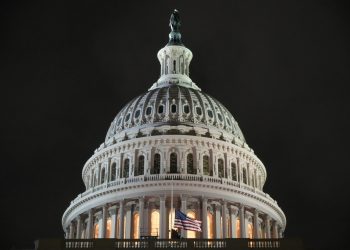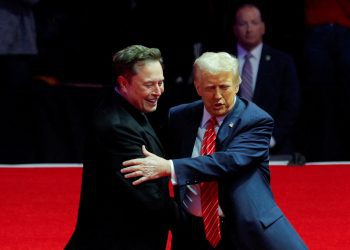President Joe Biden’s controversial pardon of his son, Hunter Biden, may have been a family-driven inevitability, but it pales in comparison to what’s looming. As President-elect Donald Trump gears up for his return to the White House, a radical new age of presidential pardons is taking shape—one where pardons could become not just shields but weapons in a nuclear lawfare strategy.
A New Pardon Arsenal
Biden’s decision to pardon Hunter underscored the broad and unchecked power of the presidency in granting clemency. The Supreme Court recently emphasized this authority as a core, immune function of the executive branch. Trump, however, appears poised to take this power to unprecedented extremes, using it as both a deterrent and a reward in his upcoming battles with perceived enemies.
If Trump succeeds in installing Pam Bondi as attorney general, Kash Patel as FBI director, and Pete Hegseth as defense secretary, he will assemble a powerful triad capable of reshaping the justice system. Trump’s stated goal is to dismantle what he calls the “weaponization” of government, but his actions suggest a plan to escalate the very practices he criticizes.
Under this plan, Trump could issue preemptive pardons to his allies, shielding them from federal prosecution before they are charged. He might also issue blanket pardons to January 6 participants to reinforce loyalty among his base and demonstrate his commitment to protecting those who act in his name. Pardons, in Trump’s hands, could become rounds of ammunition in a lawfare campaign against political adversaries.
The Risks of Trump’s Pardon Strategy
While Trump’s pardoning authority is vast, it has limits. He cannot shield his allies from state-level prosecutions, leaving figures like Bondi, Patel, and Hegseth vulnerable if they overstep. Moreover, while federal pardons might absolve crimes, they do not protect the government—or individuals involved—from civil lawsuits that could result in damages.
Trump’s unpredictable nature adds another layer of risk. As seen in his first administration, loyalty to Trump does not guarantee protection. Former aides and advisors, from Reince Priebus to Rex Tillerson, learned the hard way that their service did not ensure job security or favor. Those banking on Trump’s pardons may find themselves excluded from the fallout shelter, left pounding on the door as decisions are made on a whim.
A New Era of Lawfare
Trump’s approach raises critical questions about the future of justice and the independence of American institutions. His claims of dismantling lawfare ring hollow when viewed against his history and the looming reality of his plans. The Justice Department could become more politicized, the FBI’s independence could erode, and military promotions could hinge on political loyalty rather than merit.
In an ideal world, Trump’s rhetoric about ending lawfare would lead to reforms that insulate prosecutions from politics and strengthen institutional integrity. Unfortunately, his track record suggests the opposite: a strategic effort to weaponize these tools further while masking the effort as a disarmament.
Fallout for the Rule of Law
If Trump follows through on these plans, the fallout could reshape American justice, turning the pardon power into a partisan tool rather than an instrument of mercy. The potential consequences extend beyond his administration, setting dangerous precedents that could undermine the rule of law for years to come.
Hunter Biden’s pardon may have sparked controversy, but it was rooted in personal loyalty. Trump’s envisioned pardon strategy is something far more consequential—an arsenal aimed at opponents and a weapon in the hands of a president who views the justice system as a battleground.









